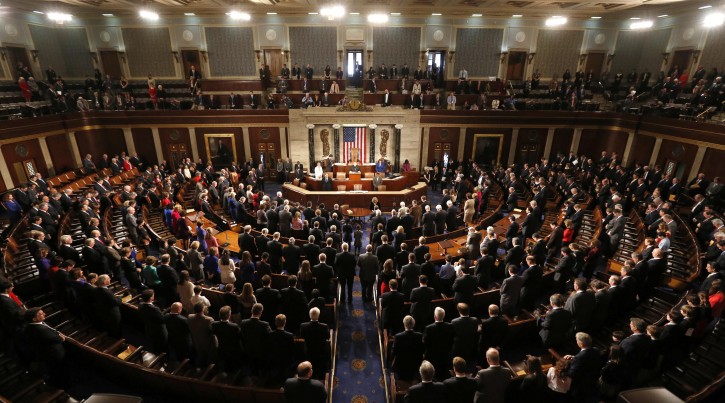Throughout the socio-political history of mankind, there has only ever been two groups of people, created out of chance or heredity: the powerful and the powerless. You can't have one without the other, and it seems we'll never have neither.
This fact explains tyranny, oligarchy and aristocracy, but also today's slowly evolving and still relatively new representational democracy. This power-based division explains the immediate offspring of this perverse version of Aristotle's original definition, namely "party politics".
As soon as man invented the idea of one person representing his locals in a parliament, man upgraded the idea to get "like-minded" representers to join forces. It all sounds quite sensible. In democracy, representatives vote on ideas (nowadays called Bills) to decide on whether they become law (Acts). So, if you can get more people on side with like-minded ideas, you are more likely to have Bills passed that suit your locals.
So, what the hell happened?
Now, that innocent idea has devolved to something more caveman than modern man. The party system has re-created that recurring ancient enemy of fairness, taking us back beyond feudal Europe, back beyond ancient Egypt, back to the plains of the Africa where small-brained morons were divided between those with the biggest males, lots of rocks and sticks, and those who were smaller and not as inclined to violence, and were therefore walked over.
Now, despite attempts by other "kinds" of wannabee-neverwillbee parties (eg. parties representing racists, hippies, single-interests) there are, as were 50,000 years ago, two political parties:
1) The party that represents and is drawn from the elite rich and powerful; and
2) The party that represents everyone else, who will necessarily be screwed as a result of those above.



In the UK it's the Tories and Labour, in the US it's the Republicans and Democrats, and in Australia it's the Liberal and Labor parties.
The workers and the wankers. Thanks to the rich, taking most of the wealth from the country for themselves, the rest have to go without. Going without has necessitated "socialist" ideas, the need for the weak to get together and demand benefits are provided to the disadvantaged and wealth is spread more fairly.
So what's the problem?
The problem is the concept at the heart of democracy is destroyed by political parties. Your representative in parliament is not representing you or their constituency. They are representing their party. If a Bill is introduced that contradicts the party policy, your MP will be instructed by the party to vote against it. Is that what we mean by democracy?
Why would a political party vote against its constiuents? Because they don't care what you think. They care about their power and their elite status, which is defined and upheld by its moral code.

So, it has become necessary to balance against this horrible power in society. That's where the socialists come in. To stop the powerful getting away with aristocratic policies, the rest of us have welcomed party representation for our own counter-cause. Thus, workers parties and socialists represent our needs against the oligarchs - on our behalf.
So?
Well, the "party", this instrument of modern-day democracy, sounds anti-democratic. That's because it is. Is that a good thing? We realise that we actually don't have a democarcy at all. We have "representatives" who don't represent us, but represent their party that claims to be, like a religion, in the best position to know what we want.
(what about our right to vote, isn't that enough power to threaten our MPs to properly represent us? Well, how represented do you feel? Which MP ever asked you for your advice before voting in parliament on a Bill that will affect you significantly? Does your MP even know you exist? You cast one vote every several years, and not on any Bills, just to pick some complete stranger you nothing about and the feeling is mutual, an MP who belongs to a party. How politically influential are you?)
Well?
Well, unfortunately, until like Switzerland (where they have Direct Democracy - voting on actual Bills by referenda) we embrace the spirit of democracy, the powerful will seek to abuse us and that necessitates an opposition... socialism.

So, although party politics is not exactly democractic, without it, and without effective resistance via a counter-party, we will eventually be ruled by a single corporation.
And for most of us, that will be no party!







